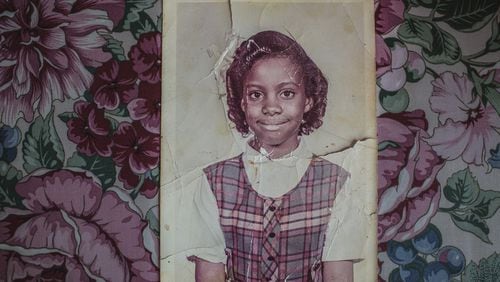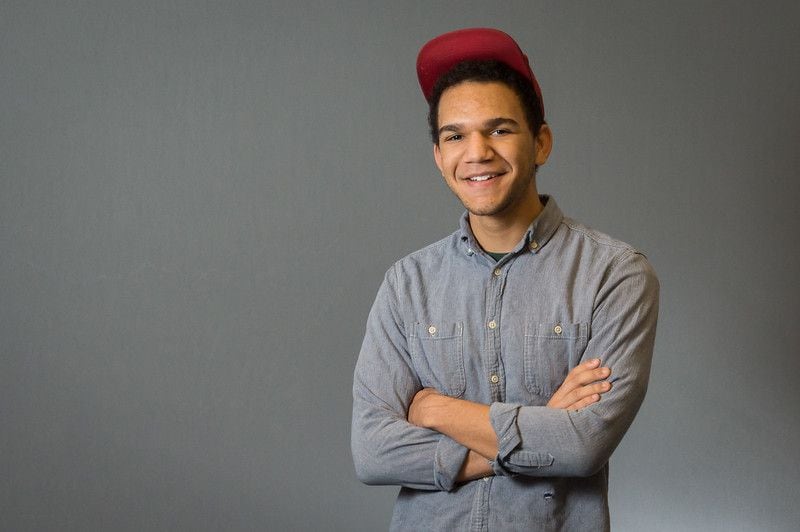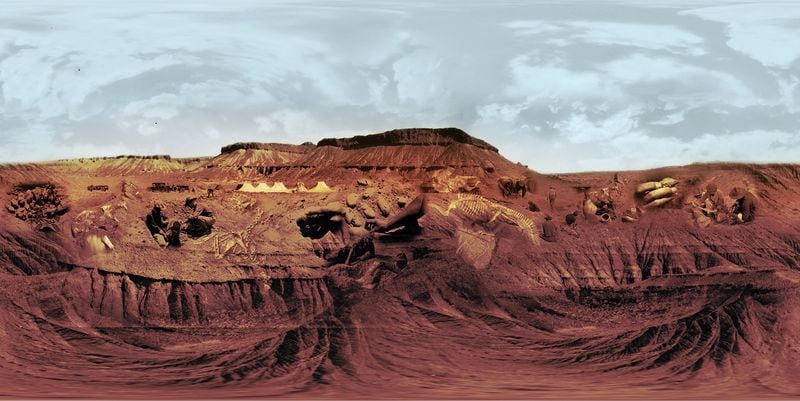When the Atlanta Film Festival kicks off its 10-day movie marathon on March 24, some films will forgo the traditional movie-watching experience of sitting in a theater gazing at a screen and instead immerse viewers in a totally different world.
“There are robots zooming past you, and you basically feel like you’re standing with those characters,” says Atlanta-based filmmaker Jak Wilmot, whose computer-animated short “Please State Your Name” is one of seven virtual reality films slated for this year’s festival. His film allows viewers to follow a decapitated robot head with a broken voice box as it tries to escape a giant garbage facility.
“It’s a different level of immersion when it’s done right,” he says. “There’s a lot of wonder in VR. You feel you’re in the world. It would be harder to create that on a 2-D screen.”
This is the second year the Atlanta Film Festival has programmed virtual reality films. The line-up last year was curated, but this year’s films were selected from a call for entries, a move indicative of the rapid growth in this realm.
Like a lot of virtual reality filmmakers, Wilmot is young: He just finished home-schooled high school last year. Using online forums and tutorials, he taught himself virtual reality animation, which combines traditional animation techniques with 3-D game development programs. “Please State Your Name” is his first virtual reality film and his first film to be included in a festival, but he says he has more in the works.
In addition to Wilmot’s film, the line-up includes Jason Drakeford’s live-action “Fossil Hunters of the Gobi,” which immerses the viewer in the journey of 1920s explorer and fossil hunter Roy Chapman Andrews, and Shannon Carroll’s documentary short “Women on the Move,” examining a woman’s life in rural Niger as she enters into a savings group to try to move her family out of poverty. The virtual reality event, slated for March 27-28 at 7 Stages Theatre in Little Five Points, functions more like a gallery with opening hours rather than a typical cinema screening. Viewers take turns putting on one of four headsets to experience the films.
“I wanted to take people to a place that was a bit deeper than I could go in a traditional film,” says Atlanta-based filmmaker Gabriela Arp, whose virtual reality film “Traces” is also on the program. Her work explores the meaning of memory for one woman living with Alzheimer’s disease. Arp got her start making traditional short documentary films for outlets like Univision and the New York Times and went back to graduate school at the University of North Carolina to learn more about new media. She started developing “Traces” as her thesis project just as some new 360-degree camera equipment arrived in the department.
“I wanted to use it as a way to re-envision and recreate the memories,” she says. “I thought it would be the perfect way to put the viewer inside the mind of this woman I’d been working with. It allows you to enter her memory space in a way you wouldn’t be able to in a non-immersive film. I wanted people to leave the film feeling as if they had been part of her memories.”
The film uses recorded documentary audio paired with actors who reenact the narrated scenes from the woman’s life in the 1930s and 40s.
“It had a unique set of challenges,” Arp says of the virtual reality filmmaking process. “During filming, if we used the cameras too long they’d overheat. I actually had to hide during every take so I never actually got to see what the actors did until I got home. It was a little nerve-wracking as a director.”
Scouting locations was also a challenge, she says.
“In a traditional film, if you find a great location, it doesn’t really matter what else is around it. But for this, we might find a great old farmhouse, but across the street would be a McDonald’s or a highway, so we couldn’t use it. Location-scouting was a lot more challenging because we had to have an environment of 360 degrees with everything looking like it was from that era.”
Arp is intrigued with new developments in virtual reality such as voice recognition and sensored bodysuits, and she’s especially excited by Atlanta’s potential as a hub for filmmaking in the virtual reality realm.
“It’s definitely growing,” she says. “Traditionally a lot of these new technologies live in New York, LA or San Francisco. Atlanta has a similar environment for creative and tech people, but it also has a low cost of living, and the city is growing. We have all these artists and this creative community that’s flourishing. I think that’s a really great foundation for new technology like virtual reality and new media for storytelling.”
FESTIVAL PREVIEW
Atlanta Film Festival. March 24-April 2. Multiple venues. $10 per screening, $50 opening and closing nights. Festival badge $50-750. 1-877-725-8849. atlantafilmfestival.com
Virtual Reality program. 6-10 p.m. March 27-28. $10. 7 Stages Theatre, 1105 Euclid Ave, Atlanta.
About the Author








